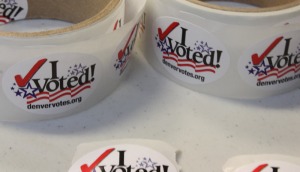Hillary Clinton “won” the popular vote but lost in the Electoral College. That’s why she won’t be president. She joins Al Gore, Grover Cleveland and Samuel Tilden – Democrats all – who tasted similarly bitter defeats. No Republican has ever been in their shoes.

“Enough!” the sore losers cry. “The system is rigged! The will of the people is being ignored!”
The morning after the election, left-wing film maker Michael Moore denounced the Electoral College as an “arcane, insane 18th-century idea.” Sen. Barbara Boxer, D-Calif., calls it “an outdated, undemocratic system that does not reflect our modern society.” She has introduced legislation to abolish it.
Undemocratic? Absolutely. That’s the point. Outdated? Hardly.
I did not vote for Donald Trump, and I am not happy he is the president-elect. But he is the president-elect. He got there by doing all the things the Constitution says a candidate must do to win the presidency.
The Founders could have written direct democracy into the Constitution, but they didn’t. There’s a good reason for that. They were well-versed in history and political philosophy and knew that simple majority rule could easily lead to tyranny.
![]() Under majority rule, it’s easy for the majority to oppress a minority, regardless of the party in power. Yes, conservative majorities can tyrannize religious, racial, ethnic and sexual minorities. But liberal majorities can tyrannize, too. As hard as it may be for Clinton supporters to accept, there are thoughtful, reasonable people who do not share liberal positions on gun control, health care or how much of their wealth belongs to government. All they ask is that their individual autonomy in those and other decisions be taken seriously, regardless of whether or not they’re outvoted in any given election.
Under majority rule, it’s easy for the majority to oppress a minority, regardless of the party in power. Yes, conservative majorities can tyrannize religious, racial, ethnic and sexual minorities. But liberal majorities can tyrannize, too. As hard as it may be for Clinton supporters to accept, there are thoughtful, reasonable people who do not share liberal positions on gun control, health care or how much of their wealth belongs to government. All they ask is that their individual autonomy in those and other decisions be taken seriously, regardless of whether or not they’re outvoted in any given election.
Majority power is a two-edged sword. That’s why we have a Constitution and a Supreme Court: To protect the rights of minorities against tyranny of the majority. That’s why America is not a democracy. We’re a constitutional republic. The Electoral College is part of that.
The Electoral College has other advantages. It asserts that all the states matter, big and small. States are political entities whose elected officials are by definition closer and more accountable to the people they serve. They must ask voters for money (instead of printing it or borrowing it) and are constitutionally forbidden from keeping American citizens from entering or leaving their boundaries. If they become too oppressive, people can leave. If they become particularly successful, people can move there.
This means states must at some level compete with one another to improve the lives of their residents, making them important laboratories for political experimentation. It’s part of the genius of federalism and is a feature worth protecting.
The Electoral College also makes sure that presidential candidates don’t spend all their time in the most populated areas of the country. Sure, Democrats might prefer that because they tend to do better in urban settings. But how much of a part of the election would you feel if you lived in rural Colorado and candidates spent all their time in California and New York? Would you even bother voting?
Let’s not forget about the specter of regional conflict that more direct democracies are vulnerable to. Sure, California and Texas occasionally mutter about seceding, but it’s just noise. By contrast, ethnically concentrated regions of countries all across the globe have seen brutal violence and outright war because their political interests were ignored by far-away majorities who ruled over them. The electoral college helps mitigate that risk by incentivizing presidential candidates to pay attention to all parts of the country.
Is it a perfect system? Certainly not. The “winner-take-all” status for the electoral votes of most states is not required by the Constitution. Colorado voted down proportional electoral vote allocation in 2004. To say that the Electoral College is important doesn’t mean it can’t be improved.
But abolish it entirely? No thank you. If you want the presidency, Democrats, win it fair and square. Don’t plant your sour grapes in the soil of the Constitution.
Barry Fagin is a senior fellow at the Independence Institute, a free market think tank in Denver. He can be reached at barry@faginfamily.net.


